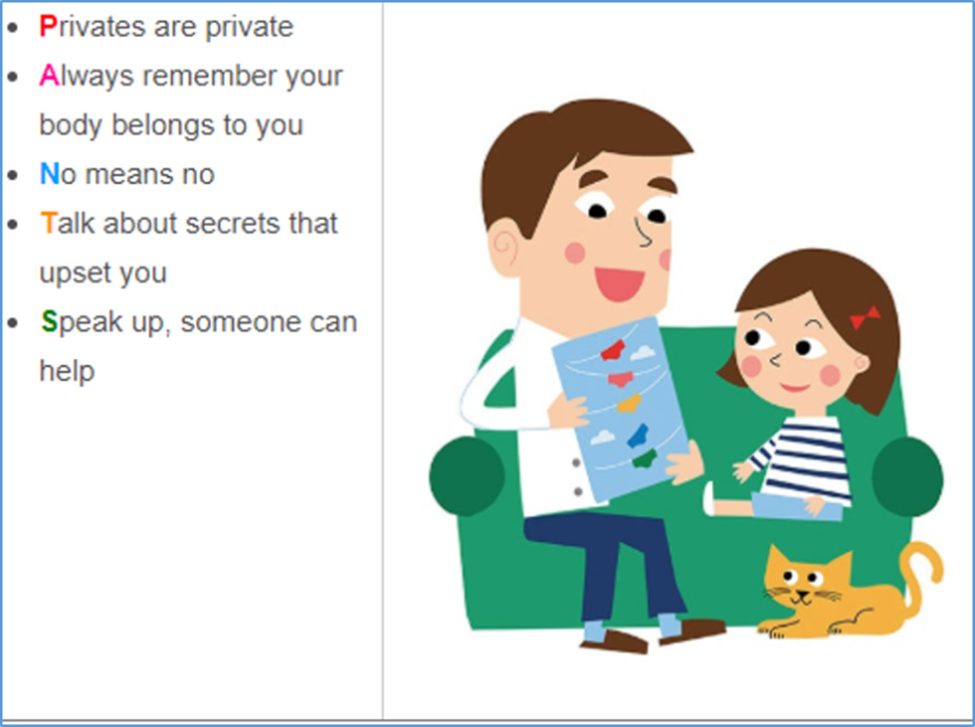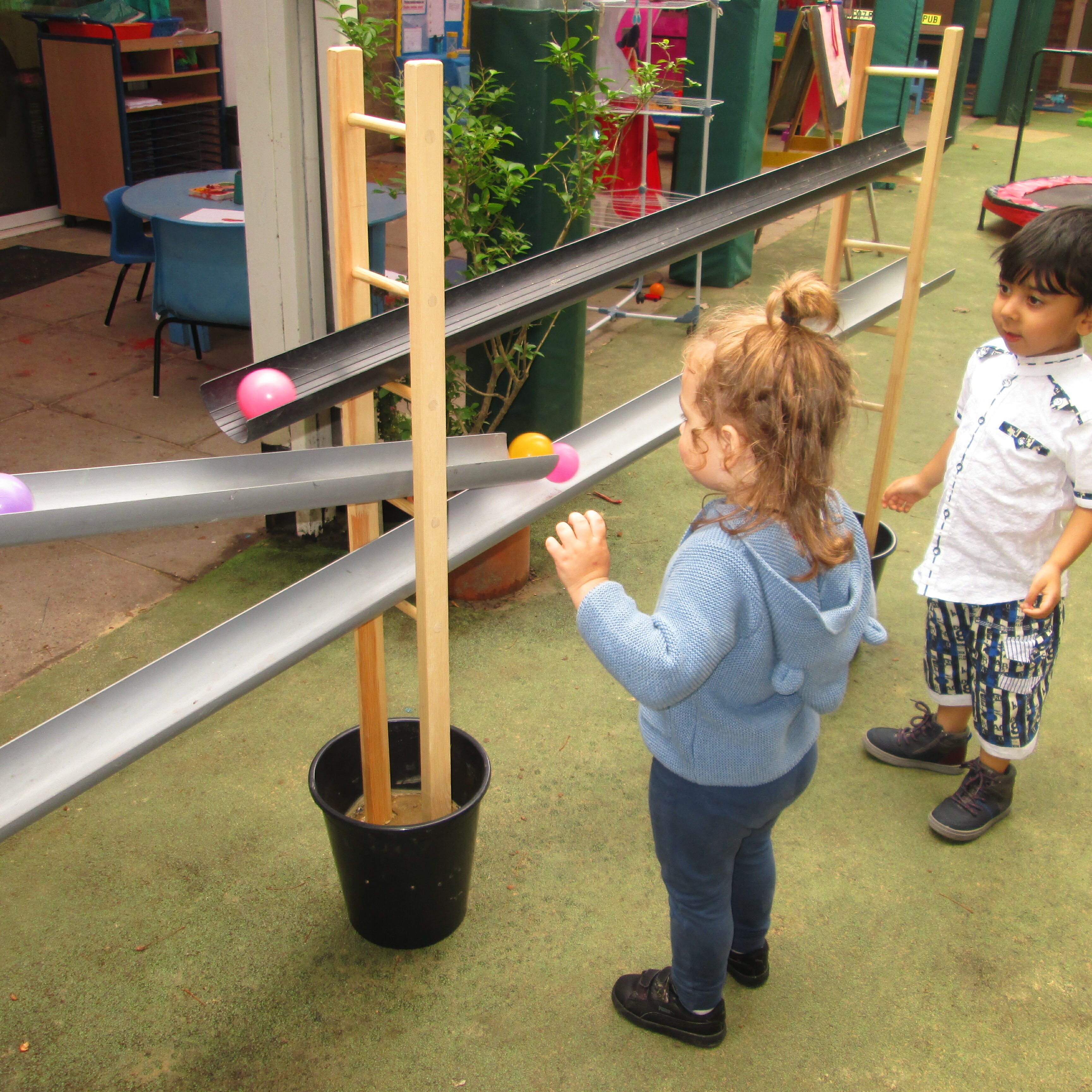SAFEGUARDING
At Tunstall Nursery School, we are committed to safeguarding and promoting the welfare of children and young people, and expect all staff to share this commitment.
We are committed to working in partnership with all parents / carers. All information will be treated in confidence, unless the designated teacher believes that a child is seriously at risk of physical injury, neglect, emotional or sexual abuse. If this is the case, then the Croydon Child Protection Procedures will be followed.
FIRST AID
The school has many trained first aiders, including paediatric first aid.
KEY CONTACTS
Designated Safeguarding Lead:
Kate Lanning (Deputy Headteacher)
Deputy Designated Safeguarding Leads:
Leigh McGuinness (Deputy Headteacher)
Jane Charman ( Executive Headteacher)
Laura Barnes (Class Teacher)
Please click here to see our safeguarding team.
Safeguarding Governor – Ludmila Powell
Chair of Governors – Ludmila Powell
PREVENT STRATEGY
Prevent is a government strategy that seeks to stop people becoming terrorists or supporting terrorist or extremist causes. It is a preventative strand of the government's counter-terrorism strategy.
All staff have received annual training on their duty to prevent children from being drawn into terrorism and radicalisation.
Further information can be found by clicking here.
NSPCC UNDERWEAR RULE
The NSPCC have some very easy to use documents regarding safeguarding and staying safe. The 'Underwear Rule' is a simple way that parents can help keep children safe without using any scary words.
Further information can be found by clicking here.

DISCLOSURE AND BARRING CHECKS
Tunstall Nursery School meets statutory requirements in relation to Disclosure and Barring Service. All staff and volunteers who work with us who meet the 'regulated activity test' (Freedoms Act 2012), are required to undergo an enhanced DBS check prior to working at our school.
TRAINING
Everyone working in our school is provided with relevant Safeguarding training prior to starting to work. All staff have in depth annual safeguarding training, and regular updates throughout the year.
KEEPING CHILDREN SAFE IN EDUCATION
Everyone working in our school has read and understood Keeping Children Safe in Education 2023. Please click to view.
OPERATION ENCOMPASS
The nursery has been given the opportunity to take part in a project that will run jointly between schools and the Metropolitan Police Service. Operation Encompass is the reporting of police attended domestic abuse incidents to schools, prior to the start of the next school day, where there are children in the home. Operation Encompass will ensure that a member of the nursery staff, (DSL) known as a Key Adult, is trained to allow them to liaise with the police and to use the information that has been shared in confidence, while ensuring that the school is able to make provision for possible difficulties experienced by children, or their families, who have experienced a domestic abuse incident. We are keen to offer the best support possible to all our pupils and we know that this is extremely beneficial for all those involved.
To view our safeguarding policy please click here.
Safeguarding Online Safety
Online Safety at Tunstall Nursery
Please click here to view advice and information from Childnet International in many languages.
Click here to view tips and websites about how to keep you and your child safe online.
The internet, computers and other digital devices are all wonderful resources that we are lucky to have at our disposal. When used correctly and responsibly the internet can be a place to learn, watch, play games, research and so much more but it must be used safely. In a world of growing technology this is a vital part of education. Some children are more competent on a device than a grown up, but they might not yet have developed a full understanding of online safety.
Touch screen technology has allowed children at a younger age to confidently explore the internet and click on a link which may not always be appropriate.
What is online safety?
Online Safety is staying safe whilst using any electronic device; this could be using the internet or other means of communication such as text/instant messages, gaming devices, (Playstation, Xbox), emails and social networking.
Online safety can be broken down into three sections:
Content – What children see online.
Some online content is unsuitable for children and can be hurtful or harmful. This is often true for content accessed via social networks, online games, blogs and websites. It only takes one misspelt word to lead to a search that could show harmful images. It is important for children to understand that not everything they read on the internet is true.
You can help by:
* Ensuring you have appropriate filters on your computer and online searches to prevent children accessing inappropriate material.
* Talking about the validity of information found on the internet.
Conduct – How children behave online.
Children need to be aware of the impact that their online activity can have on both themselves and other people, and the digital footprint that they create on the internet. Writing or saying something online or in a message may feel anonymous but it could have a devastating impact to someone or themselves in the future. An example of this is cyber bullying.
When using the internet, it is important to keep personal information, including name, age, school, address, safe, and not share it with strangers.
You can help by:
- Discussing with your child the importance of reporting inappropriate conversations, images or behaviours.
- Discussing why it’s important not to share important information over the internet.
Contact – Who children speak to online.
It is important for children to realise that friends made online may not be who they say they are. The Stranger Danger rule still applies online.
You can help by:
- Regularly reviewing friends lists and removing unwanted contacts.
- Customising the information that each friend is able to access through the privacy settings.
- Reinforcing with your child the importance of telling a trusted adult straight away if someone is bullying them or making them feel uncomfortable, or if one of their friends is being bullied online.
It is important to start these conversations with children as young as possible. It maybe that when you first start letting them use the devices connected to the internet they only watch things when they are in the room with you. Or you let them watch things through trusted sites, some website have more safety measures as they are aimed at children.
At Tunstall children are supervised when they are on the computers and the websites they are accessed are monitored. We teach children that they can only go onto the computers with our permission and onto the sites we have allowed.
How can you as parents help?
The best way to teach children how to be safe online is by understanding what they are doing when using an electronic device. By talking to and working with your child, you will know what sites / games they use and whether they are suitable.
Understand the online world, and build an environment of trust amongst your family.
If your child feels comfortable speaking to you about something they might have seen that made them feel uneasy, then you can fix the problem, there and then.
Always use search filters.
This is a simple and quick way of restricting sites that might make a child uncomfortable.
Useful links
https://safe.met.police.uk/internet_safety/get_the_facts.html
https://www.nspcc.org.uk/preventing-abuse/keeping-children-safe/online-safety/
http://kidshealth.org/en/parents/net-safety.html#
https://www.nspcc.org.uk/preventing-abuse/keeping-children-safe/online-safety/parental-controls/ (Setting up Parental controls)
https://croydon.melearning.university/course_centre/course_details/23 (Online Safety for Parents and Carers - this is provided by the LA and is free to complete)

